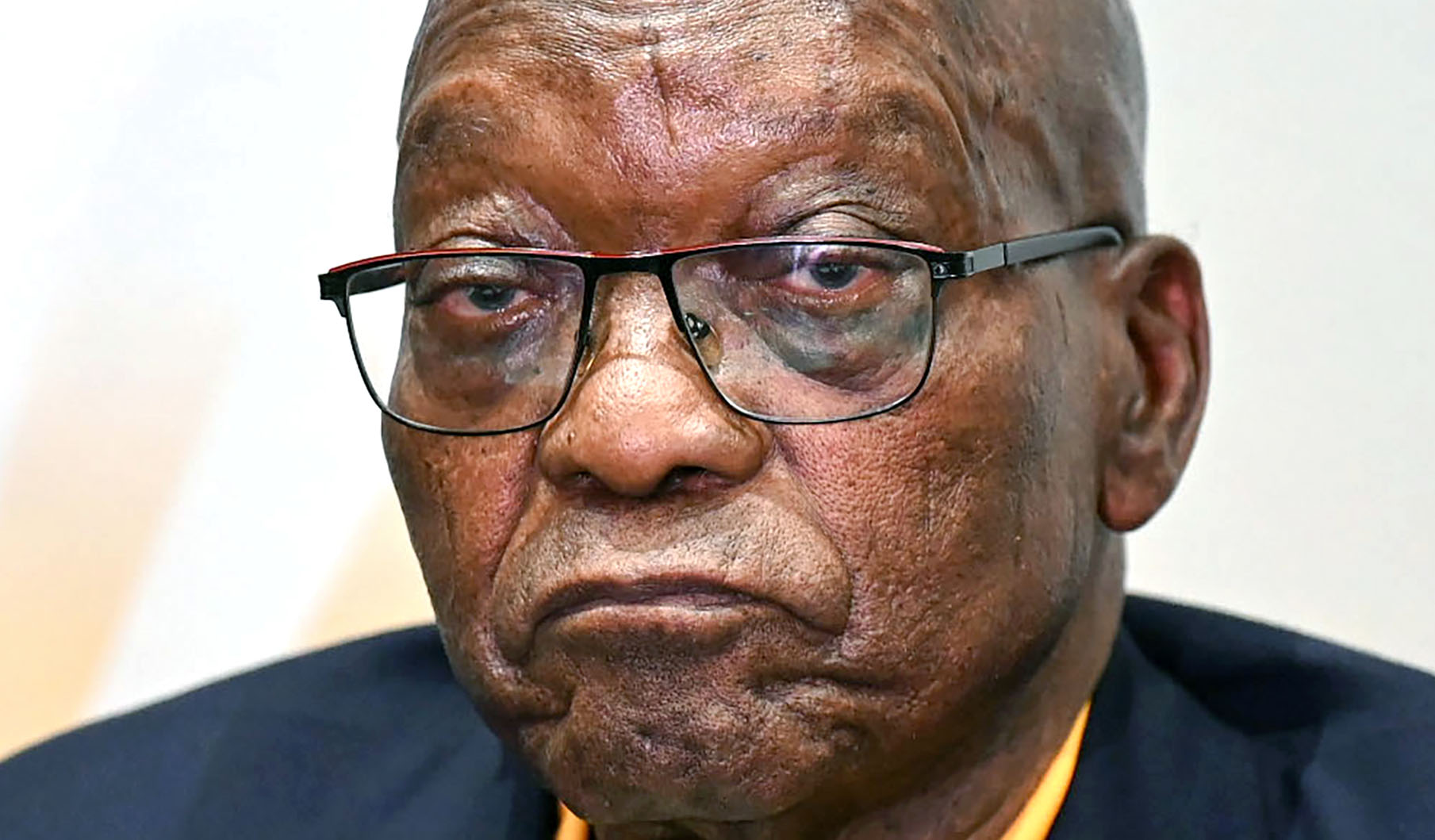Former president Jacob Zuma, the leader of the uMkhonto Wesizwe (MK) party, was a no-show at his ANC National Disciplinary Committee (NDC) hearing, which was held virtually on Wednesday.
MK spokesperson Nhlamulo Ndhlela confirmed that Zuma had delegated his ally and one of President Cyril Ramaphosa’s biggest critics, ANC member Tony Yengeni, to attend on his behalf and represent him.
The ANC’s constitution allows for a person facing disciplinary charges to be represented by a party member in good standing.
A senior ANC leader said the hearing began at 11.30 without Zuma but with Yengeni, who was instructed to persuade the NDC leadership to postpone the hearing and have it held physically at the party’s headquarters, Luthuli House in Johannesburg.
On Wednesday evening, the MK party issued a statement saying that Yengeni had attended the hearing to convey the message that Zuma preferred an in-person hearing as had previously been agreed between him and the ANC. Zuma not only wanted a physical hearing, but for it to be opened to the public.
“After a lengthy debate, the NDC ruled that the matter will proceed on the virtual platform. The NDC however granted the postponement in order to allow Cde Yengeni to convey the outcome to President Zuma and enable the holding of a pre-hearing conference.”
The hearing has since been postponed to 23 July 2024, the MK party said.
“President Zuma is very happy to have been granted this opportunity. Naturally, in the meantime he will consult with his representative and other relevant stakeholders before making a decision on the next course of action,” the party said.
Zuma faces two charges, both of which relate to the MK party, for which Zuma announced he would campaign in December 2023 — five months before the 29 May general elections.
The first charge is for contravening rule 25.17.17.4 of the ANC’s constitution, by acting “on behalf of or in collaboration with a political organisation or party other than an organisation or party in the alliance of the ANC in a manner contrary to the aims, policies and objectives of the ANC”.
The second charge is that Zuma contravened rule 25.17.13 for “joining or supporting a political organisation or party other than an organisation in alliance with the ANC, in a manner contrary to the aims, objectives and policy of the ANC”.
Zuma’s right to a fair hearing
Political analyst Dr Levy Ndou said Zuma had several reasons to delay the process.
“The first reason is that Jacob Zuma doesn’t want this hearing to be concluded quickly because he wants to use it to destroy the ANC. Anything that has to do with this hearing he might use any available opportunity to ensure that the exercise is frustrated.”
Ndou said Yengeni’s presence should not be viewed in a negative light.
“Everybody deserves a fair trial or a fair disciplinary hearing,” said Ndou, “so when you have Yengeni, he might be going there for two reasons. One, because he favours Zuma and believes in what he’s doing. Two, it will be a good opportunity for everyone to know exactly what has been the thinking behind the behaviour of Jacob Zuma, which in the end has the potential to assist the ANC moving forward.”
The ANC suspended Zuma in January for actively impugning the integrity of the party by campaigning to dislodge it from power. The decision to suspend Zuma was made unanimously by the ANC’s National Executive Committee (NEC).
This was after Zuma’s public announcement that he would no longer vote nor campaign for the ANC led by Cyril Ramaphosa, whom he accused of being against the progress of black South Africans.
Who is in the NDC and what can it do?
The ANC’s NDC has eight members. Two are from the NEC — Faith Muthambi and Nocawe Mafu. The others are Thandi Orleyn, Enver Surty, Kerensa Millard, Robinson Ramaite and Vusi Pikoli.
Read more: ANC National Disciplinary Committee summons Zuma over MK party support
The NDC has the jurisdiction to expel from the ANC any member whom they find is in contravention of rule 25 of the party’s constitution. It may impose penalties or sanctions for “proven violations of the constitution, other relevant instruments, principles, norms, policies and decisions of the ANC”.
Should Zuma be expelled or sanctioned following the hearing, he will have up to 14 days to contest the findings with the party’s National Disciplinary Committee of Appeal.
Should the NDC expel Zuma, he will be the first former president to be expelled from the party. In June 2023, his ally, former secretary-general Ace Magashule, became the first SG to be expelled from the party.
Read more: Ace Magashule needs to find new home after ANC cracks whip and permanently expels him
The NDC was initially expected to have the hearing physically in May, but it was postponed for security reasons, according to the party’s secretary-general, Fikile Mbalula.
“In pursuance of this duty and based on an assessment of the security situation prevailing at Luthuli House, the secretary-general’s office was advised that activities that have the potential to attract large gatherings that might result in violent or disruptive behaviour are not advisable, especially so close to election day,” Mbalula said at the time.
Read more: ANC disciplinary hearing against Zuma postponed amid security concerns
The ANC could not be reached for comment at the time of publishing. In an earlier statement, its acting spokesperson, Zuko Godlimpi, said: “A verdict will be announced once the committee has received and reviewed all representations. We cannot specify the timeline for this process as it depends on the scope of the deliberations and the issues under consideration.” DM





